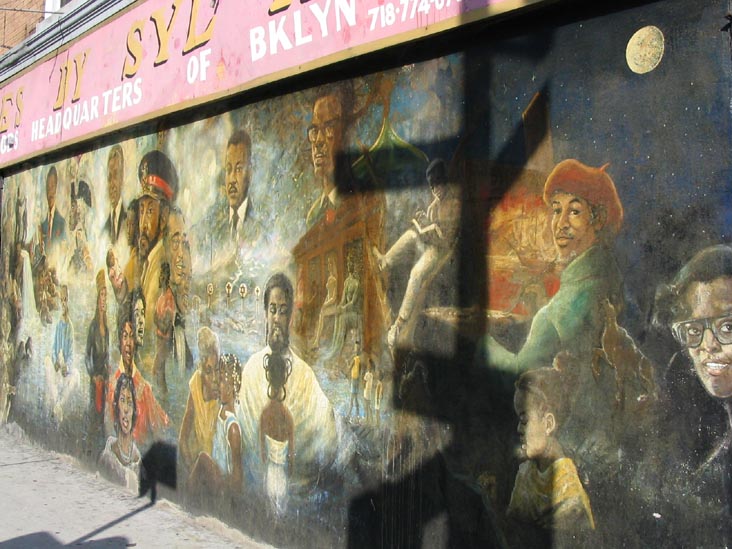Black Belt Brooklyn is a digital humanities website that emerges out of the research I have been doing related to my next book, also titled Black Belt Brooklyn. The format of a book is limited—the number of images included is small, you can’t hear the voices of people on the page, and the additional details that build the world of the book are at risk of being cut for going beyond a narrow book argument. Thus, this digital humanities site serves as an ongoing effort to think about Black Brooklyn before 21st century gentrification, to think about Black urban place beyond the limitations of the page.
Black Belt Brooklyn aims to illustrate and historicize Black practices of vitality, mutual-aid, and institution building during a period of widespread neglect by formal political institutions at every level. Using Black spatial production (or an emplaced “making a way out of no way”) Black residents produce place counter to official geographies and understandings of urban space that draws from practices of Black resistance, community organizing, and institution building. Thus, Black Belt Brooklyn serves as a tool in a “technology of recovery,” (Gallon 2016) excavating time-space activities, events, and socialities.
Black Belt Brooklyn was created with the support of (and in collaboration with) The African American History, Culture, and Digital Humanities Initiative at the University of Maryland-College Park. Special thanks to Kola Heyward-Rotimi, Andrew Smith, Christin Washington, Dr. Aleia Brown, and Dr. Marisa Parham. And much gratitude to my research assistant, Courtney Bell.
Additional project development was supported by the Fenwick Fellowship and a Center for Humanities Research Summer Faculty Research Grant at George Mason University. Thank you to Alyssa Toby Fahringer and Jack Tieszen at Fenwick Library. Special thanks to my research assistant, Mark Edwin Peterson.
Amaka Okechukwu is an interdisciplinary scholar of social movements, urban politics, and Black communities.

